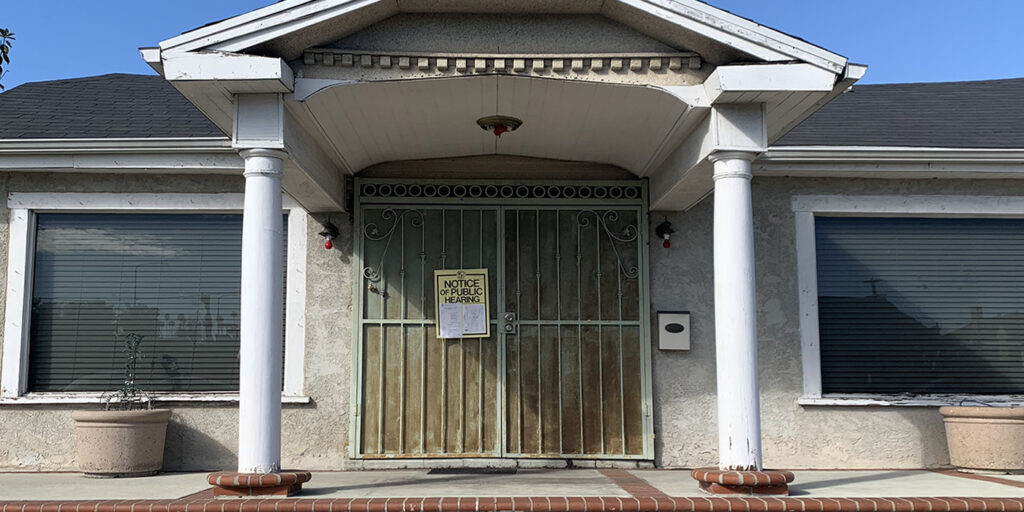A restitution fund and transparent complaint resolution process is critical for victims of PACE fraud, who are often low-income people of color. Without these essential tools, they will lose their greatest financial asset and source of family security – their home. Clean energy initiatives shouldn’t harm low-income communities. Even if PACE created or expanded energy efficiencies in the California housing market, those benefits should not come at the expense of low-income families and their communities.
The legal services and community based organizations that make up our coalition have seen hundreds of low-income and elderly homeowners describe the following conditions in the PACE program.
- Most PACE Victims Have Nowhere to Turn
- PACE-Funded Home Improvements Often Do Not Promote Clean Energy
- PACE Loans are Expensive and Often Predatory
- In a Majority of the Cases We See, PACE Victims are People of Color, Often Elderly, and/or Monolingual Spanish Speakers
- PACE Loan Sales Strategies Encourage Fraud
Most PACE Victims Have Nowhere to Turn
Unless a PACE victim can find an attorney willing to take their case to court, it can be very difficult – often impossible – to get any relief for them. While some PACE administrators have worked with our organizations to assist clearly defrauded homeowners, others – such as California’s largest PACE Administrator, Renovate America – routinely ignored attempts to settle contested matters unless a lawsuit was filed. Renovate America has now filed for bankruptcy protection making it even harder for wronged homeowners to get any compensation.
“Los Angeles is the county where I grew up with tears and sweat. It makes my heart break that the county I call home wants to make me homeless.”
Luis Hernandez, Los Angeles homeowner
Mr. Hernandez was approached by a salesperson claiming to sell the “ADU Program,” where homeowners could convert their garage into an accessory dwelling unit (ADU) and finance the entire project through the PACE program, but before he even entered into a contract and before the contractor had begun any work on the property, Renovate America (HERO) released over $65,000 of PACE funds to the contractor despite Renovate’s claims that PACE does not finance ADU conversions. After a year of promises by the contractor that they would begin the construction work “soon,” the contractor abruptly closed shop and Mr. Hernandez turned to Renovate for help. Renovate told him they were in litigation with the contractor, but half a year later Renovate declared bankruptcy without ever resolving his issue. With both the contractor and Renovate gone, Mr. Hernandez filed an administrative appeal with LA County pleading for the removal of the PACE lien; however, the County denied his claim without any explanation. Mr. Hernandez now has nowhere left to turn and must continue to pay nearly $6000 in additional property taxes every year for 15 years for work that was never even started.
PACE-Funded Home Improvements Often Do Not Promote Clean Energy
- Many items that get funded under PACE have nothing to do with clean energy. For example, many homeowners have been sold accessory dwelling units.
- Homeowners are not required to obtain any pre-financing energy assessments or audits to ensure they are investing in the most effective upgrades for their homes. For example, we’ve seen solar panels financed under PACE that are not suitable for the size of the house and don’t end up saving the homeowner energy or money. For more information, see the Berkeley Environmental Law Clinic Report “The Dark Side of the Sun: How PACE Financing Has Under-Delivered Green Benefits and Harmed Low-income Homeowners.”
- PACE Administrators are not required to confirm that the energy-efficient products they agreed to finance were actually installed. We have seen tankless water heaters financed but regular water heaters installed; or, worse still, we have seen contractors pocket PACE funds but fail to install anything at all.
PACE Loans Are Expensive and Often Predatory
- PACE loans are not sold by financial specialists. Contractors and their agents sell PACE products door-to-door, often without adequately explaining all aspects of the financing. These salespeople often tell homeowners that they can qualify for significant tax-savings, despite having no authorization to give tax or financial advice. Reginald Nemore, a Los Angeles resident, took out a PACE loan for solar panels after being misled about the price by the contractor he hired. The contractor did not tell Reginald how much he would have to pay. The contractor did tell Reginald that he would receive a government rebate of $7,000. This rebate was not actually available to Reginald, and so for the next 25 years he will be stuck paying almost all of his monthly income towards his PACE loan.
- Transactions often occur at lightning speed and are in many cases paperless. PACE financing applications are often presented to homeowners on smart phones, tablets, or computers and often use electronic signature technology. The signature process can be completed extremely quickly; homeowners can be signed up for tens of thousands of dollars in loans with a few touches on a computer tablet. Often people don’t realize they are signing up for financing at all. Robert Unser, an elderly man with disabilities from San Diego, received PACE Financing for solar panels. His application was finalized electronically, despite Robert not having an internet connection, let alone an email address.
- PACE loans are expensive, with interest rates often 2-3 times higher than the regular mortgage rate. PACE loans usually have a 15-30-year term and typically carry interest rates of 8-9%: as a result, homeowners can end up paying double the initial contract price.
- In many cases, homeowners who receive PACE loans cannot afford to repay them. Even though PACE companies have been required since April 2018 to determine that homeowners can afford to repay their PACE loans, we regularly see PACE victims who were already barely making ends meet before they were signed up. In many of these cases, the homeowner was led to believe that the PACE loan would create energy savings that would lower their overall costs.

In a Majority of the Cases We See, PACE Victims Are People of Color, Often Elderly, and/or Monolingual Spanish Speakers
- Across our organizations, approximately 90% of the clients we have assisted with PACE issues are people of color, and the vast majority of them are Latinx or African American.
- Approximately 50% of our clients with PACE issues have limited or no English proficiency. These homeowners typically reported speaking with the contractors in Spanish but then receiving their PACE financing documents in English. In these cases, contractors have required homeowners to sign documents that they cannot read or understand.
- Roughly one third of our clients with PACE issues are elderly. These clients often have difficulty using smart phones or computers, and may not use email or the internet, making it hard for them to understand the financing application process or recognize when a contractor may be misleading them. Gwendolyn Lang, an elderly Homeowner in Gardena, CA was misled about the financing that she received and ended up with five separate PACE liens totaling over $500,000 against her property and a $28,000 annual increase to her property taxes.
PACE Loan Sales Strategies Encourage Fraud
- Contractors may sell homeowners unnecessary products. Because there are no pre- or post-financing audits or inspections, contractors can sell products that homeowners do not really need. Valerie Morehouse of Concord, CA was enrolled for almost $130,000 in PACE financing for the installation of windows and other items. Valerie, who is elderly and was suffering from dementia at the time of the financing, did not need the newly installed items, and many of the items replaced had previously been upgraded, according to a 2018 lawsuit filed on Valerie’s behalf.
- Price gouging by contractors is common. We frequently see above-market prices for products and services, such as projects that include $24,000 HVAC systems or $1,000 lightbulbs. One lawsuit alleges that a Contractor’s State Licensing Board investigation found that the defective work performed on one project had a fair market value of $2,440, far less than the $58,000 charged for it. Even if it had been completed without defects, the investigation found that the work would have only been worth $17,375. (See pages 25-27 here.)
- PACE Administrators are not required to inspect the products that they finance or ensure installations are up to code. Typically, PACE projects are not inspected before funds are paid to contractors, allowing contractors to take advantage of homeowners. Leonard McBean of Los Angeles hired a contractor to upgrade his electrical panel. The contractor claimed to have also installed insulation in the house. Leonard was charged for these extra products, despite having never received them. We have also seen dozens of cases where no work has been done at all, or where the work was so shoddy and could not pass inspection.
- Contractors have represented that home improvements are free under a government program. Advocates have seen many homeowners promised free work. One contractor, Eco Technology, has been ordered to stop by the Department for Financial Innovation and Protection for this and other practices.
Take action
for
clean energy justice!

